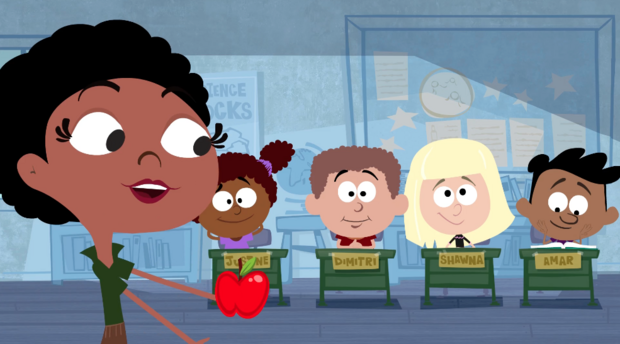Engaging and entertaining new web series developed in partnership with Boston-based FableVision Studios is designed to support science educators.
WASHINGTON, DC -- The Smithsonian Science Education Center (SSEC) has launched Good Thinking! The Science of Teaching Science, a free, engaging and entertaining new web series designed to support science educators. Developed in partnership with Boston-based FableVision Studios, the series debuts with three episodes; additional episodes will premiere throughout the summer. It is available now on SSEC’s web page and its YouTube page, and will be available through other channels this summer. “Good Thinking!” is the latest initiative in SSEC’s comprehensive professional development program for science teachers.
“Here at SSEC we identified a crucial need for accessible, professional development tools that help educators break down misconceptions and other barriers to understanding scientific principles,” said Marjee Chmiel, Associate Director of Curriculum and Communications for Smithsonian Institution. “Good Thinking! meets that need head on -- shining a light on the classroom and pedagogical challenges teachers face, and providing solid, science-based, experiential ideas that can keep their teaching on track. Through these engaging videos, which we expect teachers will share with their colleagues, we aim to enhance K-8 science education, and deepen understanding of STEM topics for teachers and students alike. No other on-demand resource like this exists.”
Good Thinking! comprises short, animated videos that explore pedagogical ideas across a range of subject-matter topics like energy, cells and gravity, as well as cognitive research findings on topics such as student motivation, or the myth of left- and right-brained people. Led by teacher Isabella Reyes, each episode centers on interactions with her students in class. But Ms. Reyes also encounters a cast of recurring characters who spring to life from classroom objects and guide her through fine points of teaching. These characters include a talking orchid (who’s an expert on life sciences), a talking Bunsen burner (a physical sciences guide), and Gummerson, a gruff but wise wad of gum who’s “stuck around” the school for a long time, and provides advice on pedagogical strategies.
Ms. Reyes is smart, curious, funny and self-reflective in her interactions with students and the other characters. “By uncovering misconceptions about science content and the nature of science education, Ms. Reyes helps viewers assess and develop techniques for their own classrooms in a relatable way,” says Chmiel. “We want educators to feel she is in the trenches with them, helping with their toughest challenges.”
The Good Thinking! episodes launched on Monday focus on the following:
“Conceptual Change: How New Ideas Take Root” explains how students learn by exploring the ideas (including misconceptions) they bring to class, as well as how those ideas interact with new ones, and how educators can introduce new ideas effectively.
“Natural Selection: Common Misconceptions” shows how students (and teachers) can misinterpret aspects of natural selection and evolution:
“Sending ‘Learning Styles’ Out of Style” shows how research debunks the myth that teaching students in their preferred styles (e.g. “visual learners,” “auditory learners”) is an effective classroom practice:
“We’ve long known animation as a wonderful medium through which to explore complex topics,” said Gary Goldberger, President of FableVision Studios. “It helps visualize and make sense of scientific phenomena that may be too small, too large, too slow, or too fast to observe as live action footage. The humorous approach of the visuals and writing here, combined with a recurring cast of characters, makes the content relatable and digestible -- for teachers and for anyone interested in science. The Smithsonian Science Education Center has shown leadership and creativity in guiding this landmark project, and a keen understanding of how entertainment can be used to present significant content.”
Research has shown that the students of teachers who understand common student misconceptions are able to achieve greater learning gains, and the development of the Good Thinking! series is informed by this research. The production team consulted with and sought input from a group of science and education experts, and the writing team boasts three Emmy Award winners for television writing.
Chmiel says the series provides a convenient supplement to traditional professional development efforts that often require substantial investments of time and money, and can be difficult to tailor to specific teacher needs. SSEC will publish a professional development guide later this year as a companion to the videos, providing a comprehensive package that is free and accessible to educators across the country.
Source: FableVision Studios











